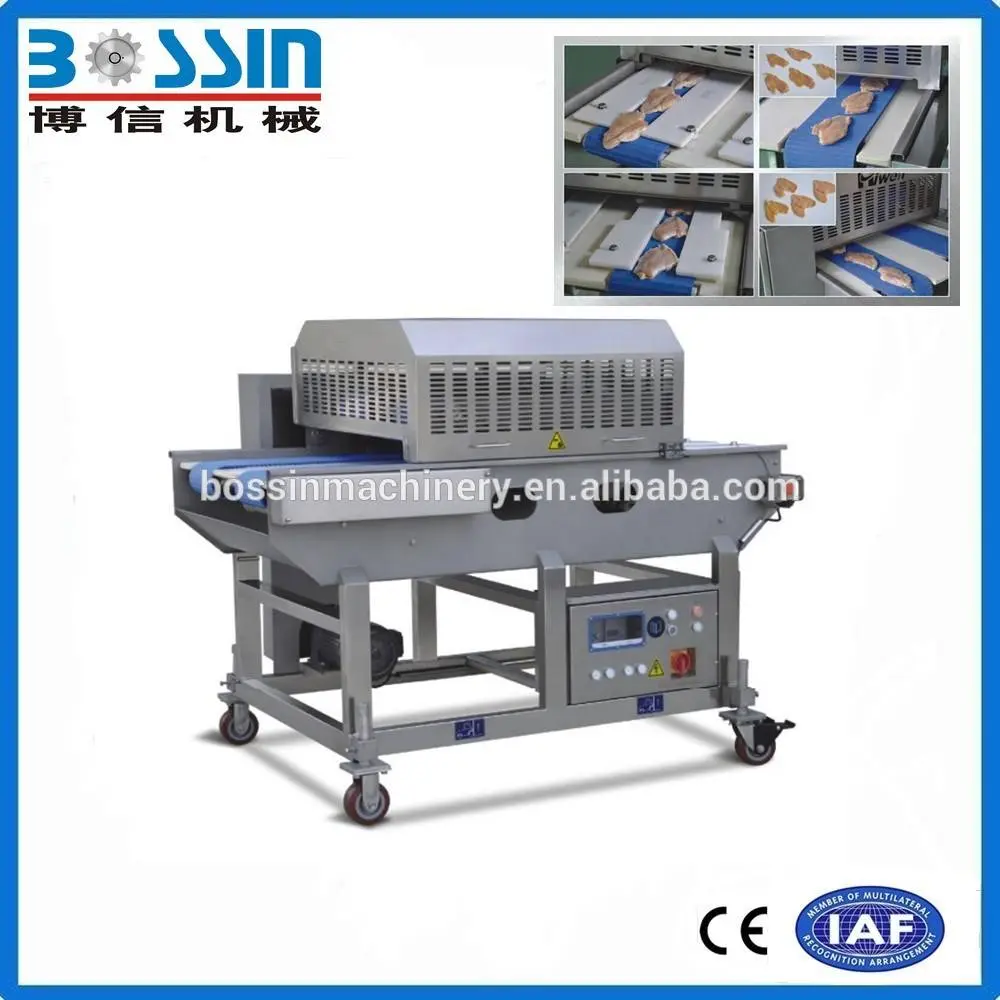
Aug . 14, 2024 03:26 Back to list
Exploring the Benefits and Features of Vacuum Filler Machines for Efficient Food Processing
The Importance of Vacuum Filler Machines in Food Processing
In today's fast-paced food industry, efficiency and quality are paramount. One piece of technology that has made a significant impact on food processing is the vacuum filler machine. These machines not only enhance productivity but also ensure the integrity and safety of food products, making them indispensable in modern manufacturing environments.
What is a Vacuum Filler Machine?
A vacuum filler machine is a specialized piece of equipment designed for accurately filling casings with a variety of products, including meats, sausages, and other food items. This machine operates by creating a vacuum within the filling chamber, which helps to reduce air bubbles and guarantees a consistent product. The process not only maintains the texture and flavor of the food but also extends its shelf life, making it a preferred choice for many manufacturers.
Advantages of Vacuum Filler Machines
1. Precision and Consistency One of the key benefits of vacuum fillers is their ability to achieve precise filling volumes. This accuracy ensures that each product is filled to the desired weight, reducing waste and maximizing efficiency. Consistency in product quality is vital for brand reputation and customer satisfaction, and vacuum fillers provide this critical advantage.
2. Enhanced Product Quality Air trapped in food products can lead to oxidation, which may spoil flavors and compromise food safety. The vacuum filling process minimizes the presence of air, preserving the freshness and quality of the product. This is particularly important in meat processing, where maintaining flavor and texture is crucial.
vacuum filler machine

3. Versatility Vacuum fillers are adaptable and can handle a wide variety of applications, from filling sausages to pastes and liquids. This versatility makes them suitable for various industries, including meat processing, dairy, and even pet food production. Manufacturers can streamline their operations by using a single machine for multiple products, enhancing their productivity.
4. Increased Shelf Life By reducing the amount of air in the product, vacuum fillers help to prolong shelf life. This is especially beneficial in industries where product turnover may not be rapid. Extended shelf life not only reduces spoilage but also allows for longer shipping times, making it easier for businesses to expand their market reach.
5. Improved Hygiene In food processing, hygiene is of utmost importance. Vacuum filler machines are designed with sanitary operations in mind, often constructed from stainless steel to prevent corrosion and ensure easy cleaning. Many machines also incorporate features that minimize the risk of contamination during the filling process, thereby meeting stringent food safety regulations.
Maintenance and Considerations
While vacuum filler machines offer numerous advantages, proper maintenance is essential to ensure their longevity and efficiency. Regular cleaning, lubrication, and inspection of components like seals and valves can prevent downtime and costly repairs. Additionally, operators should be trained in the proper use of these machines to maximize productivity and adhere to safety standards.
Conclusion
In conclusion, vacuum filler machines play a critical role in the food processing industry. Their ability to enhance product quality, maintain hygiene, and improve efficiency makes them essential for modern manufacturing operations. As the demand for processed foods continues to rise, investing in a high-quality vacuum filler machine is a strategic move for businesses aiming to thrive in a competitive market. With advancements in technology, these machines will continue to evolve, offering even greater benefits to food producers worldwide.
Latest news
-
[Product Name]-[Company Name]|[Core Function 1]&[Core Function 2]
NewsJul.13,2025
-
SmartFlow 3000 Series-Industrial Automation Solutions|AI Analytics&Energy Efficiency
NewsJul.13,2025
-
NextGen Equipment Series-IndustrialTech Solutions|Smart Automation&Real-Time Analytics
NewsJul.12,2025
-
Smart Irrigation System - Example Corp | Water Conservation, AI-Driven Efficiency
NewsJul.12,2025
-
Chicken breast meat slicer
NewsMar.07,2025
-
Meat Bowl cutter for LAB
NewsMar.07,2025